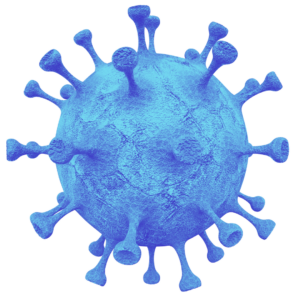Live info session: New releases & impacts to your workflows
BlueDot has made significant enhancements to our global disease activity intelligence. Improvements include the ability to query global activity for all diseases in a single
Read articleBlueDot has made significant enhancements to our global disease activity intelligence. Improvements include the ability to query global activity for all diseases in a single
Read articleThanks to wastewater surveillance, sewers can double as data pipelines that can help predict infectious disease spread Here at BlueDot, we face a constant paradox
Read articleHow climate change is expanding mosquito habitat and spreading diseases to new regions — and how AI can help predict their next move Malaria has
Read articleJoin BlueDot epidemiologist Josephine De Leon as she performs a rapid risk assessment of travel health risks in Uganda to prepare her team for an
Read articleLearn about how we use a data-driven approach to summarize notable influenza trends and activity globally for the current/upcoming season, and highlight regions that have
Read articleIn recent months BlueDot has identified an increase of measles activity across the globe. Growing activity is of particular concern to more vulnerable populations such as
Read articleNext generation surveillance of infectious disease intelligence Lauren Charbon, Director of Product Marketing When protecting your people, operations, and economy from the disruption of infectious
Read articleUnleashing the power of AI-powered surveillance vs. traditional in-house systems Building a world-class disease surveillance engine is hard. We would know – ours was the
Read articleDespite their name, “rapid” risk assessments can take hours – if not days. And when an outbreak emerges, every second counts. At BlueDot, we cut
Read articleAnticipating burden of disease for mosquito-borne diseases Organizations can now anticipate the future burden of chikungunya, dengue, yellow fever, and Zika with BlueDot’s latest intelligence
Read article
Fill out the form below to learn more about sponsorship opportunities.

Doe Kley is an Infection Prevention Fellow within Clorox Healthcare’s Clinical and Scientific Affairs team and is passionate about helping glean insights and solutions to tackle the many challenges faced in infection prevention. Her role focuses on providing consultative services and developing practice tools using her 20+ years of clinical expertise in acute care infection prevention from working in large healthcare systems, such as Intermountain Healthcare and Kaiser Permanente.
Doe is a registered nurse and received her Master of Public Health from the University of Nevada, as well as a Bachelor of Microbiology from Weber State University. She teaches an infection control course for the Ohio State University (OSU) and is also dual-board certified in infection prevention and epidemiology in both acute and long-term care. Additionally, Doe is certified to train EVS through Association for the Healthcare Environment (AHE) and is currently a member of AHE, the Association for Professionals in Infection Control & Epidemiology (APIC), the Association of periOperative Registered Nurses (AORN), and the Society for Healthcare Epidemiology of America (SHEA). Doe is active on several committees including Test Committee for the Certification Board of Infection Control & Epidemiology (CBIC) and the Advisory Council for the Pearce Foundation Environmental Services Optimization Playbook (EvSOP). She also served on the board of directors for California APIC Coordinating Council (CACC) in 2022.

Dr. Kamran Khan is an infectious disease physician-scientist and a Professor of Medicine and Public Health at the University of Toronto. Motivated by his experiences as a frontline healthcare worker during the 2003 Toronto SARS outbreak, Dr. Khan has been studying outbreaks of emerging and reemerging diseases for more than a decade to lay the scientific foundation for a global early warning system for infectious diseases. His research has been published in scientific journals from the New England Journal of Medicine, to the Lancet, Science, and Nature. To translate and disseminate scientific knowledge into timely action, Dr. Khan founded BlueDot in 2013, a digital health company that combines human and artificial intelligence to help governments protect their citizens, hospitals protect their staff and patients, and businesses protect their employees and customers from dangerous infectious diseases. His work during global health emergencies has led him into numerous advisory roles from the World Health Organization to the White House. Dr. Khan also received a Governor General’s Award for his work transcending clinical medicine, public health, big data, and artificial intelligence.

Dallas County Health and Human Services Department
Dr. Huang has been the Director and Health Authority for the Dallas County Health and Human Services (DCHHS) Department since February 2019. He received his undergraduate degree in Civil Engineering from Rice University, his MD from the University of Texas Southwestern Medical School, and his Master’s in Public Health from Harvard. Dr. Huang completed his residency training in Family Medicine at Brackenridge Hospital in Austin and was Chief Resident during his final year. He served two years as an Epidemic Intelligence Service (EIS) officer with the Centers for Disease Control and Prevention assigned to the Illinois Department of Public Health where he conducted epidemiologic studies in chronic disease and infectious disease outbreak investigations. Dr. Huang was Chief of the Bureau of Chronic Disease and Tobacco Prevention at the Texas Department of Health/Texas Department of State Health Services for 16 years and then served as Medical Director/ Health Authority at the Austin Public Health Department prior to moving to Dallas.
Dr. Huang has overseen epidemiologic and surveillance teams, and has also developed and implemented numerous surveillance systems at the state and local levels. Dr. Huang has served as Executive Project Lead for all of the DCHHS Data Modernization efforts. He is currently on the Board of the National Association of County and City Health Officials, and is the Immediate Past-Chair of the Big Cities Health Coalition. Dr. Huang is an Adjunct Assistant Professor with the University of Texas School of Public Health and also with the University of Texas Southwestern Medical School Peter O’Donnell Jr. School of Public Health.

Dr. Andrea Thomas is a veterinarian with an MSc and PhD in epidemiology from the University of Guelph in Canada. Her interests lie at the intersections of global health, infectious diseases, and surveillance. She currently directs the epidemiology program at BlueDot, ensuring high quality data and information are shared in a timely manner with diverse stakeholders. Dr. Thomas was involved in the development of BlueDot’s global infectious diseases event-based surveillance system, which was instrumental in the early detection and monitoring of the COVID-19 pandemic. She has led BlueDot’s surveillance and epidemiology team of expert analysts through the development, maintenance, and dissemination of global COVID-19 data and information throughout the pandemic as they continued to track the spread of many other infectious diseases occurring globally.

Dr. Mariana Torres is a physician and currently leads BlueDot’s Surveillance team. With a comprehensive background in clinical and research work, Mariana’s prior experience includes significant contributions to Clinical Infectious Diseases at the Hospital for Sick Children and the University of Toronto in Canada. She completed the Infectious Diseases Research Program at Universidad Alcala de Henares and earned a Master’s degree in Immunology and Biology from Universidad del Zulia, Venezuela. Her academic foundation includes a Medical Doctor (Surgeon), and Paediatrics and Childcare post-graduate degree from the same institution. More recently she has obtained an Antimicrobial Resistance Certification from the London School of Hygiene & Tropical Medicine.
At BlueDot, Mariana has been instrumental in shaping BlueDot’s surveillance program, enhancing the utilization of AI for detecting and assessing emerging threats, and fostering innovation in the response to disease outbreaks.